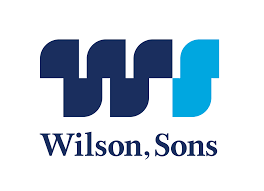
Efen, Wilson Sons, Port of Açu, and Vast to conduct first HVO testing in Brazil’s maritime sector
RIO DE JANERIO : This month, Wilson Sons received approval from ANP to conduct the first tests on using HVO (Hydrotreated Vegetable Oil) in the Brazilian maritime sector, with efen and Port of Açu as partners.
To replace marine diesel oil, efen will import HVO, also known as renewable diesel or green diesel, to be tested on Wilson Sons’ tugs in the Port of Açu, in São João da Barra (Rio de Janeiro). The liquid handling operation will be conducted at the Açu Liquid Bulk Terminal (TLA), owned by Vast Infraestrutura.
“After the testing period, we expect to expand the distribution of HVO to Platform Supply Vessels (PSVs) and other offshore support vessels in the Port of Açu, encouraging the reduction of greenhouse gas (GHG) emissions in the oil & gas supply chain,” says efen CEO Rafael Pinheiro.
The green diesel study in Açu includes efficiency testing, assessing the effects on maintenance processes, and reducing greenhouse gas (GHG) emissions. Green diesel can reduce carbon dioxide (CO2) emissions by more than 80%, considering its complete life cycle*.
“Our decarbonization agenda does not only include building more efficient tugboats but also decreasing the environmental impact of our fleet of more than 80 vessels. In this context, HVO emerges as a promising solution, as it is a drop-in fuel that does not require any adaptations to our equipment, representing an important choice for the port support industry,” says Marcio Castro, executive director at Wilson Sons Towage division.
Although the maritime sector is already considered the least polluting one per ton of cargo per kilometre traveled, accounting for just 3% of global greenhouse gas emissions**, it still plays a significant role. The International Maritime Organization (IMO) strategy sets a net-zero target for GHG emissions from international shipping by 2050, which can be accelerated with HVO.
“We want to foster energy transition projects in emission-intensive industries, such as shipping. In the future, we can set up HVO plants and other facilities for low-carbon fuels,” says Eugenio Figueiredo, CEO of Port of Açu.
Fuel testing on tugboats
Vast and Wilson Sons have also recently signed a memorandum of understanding (MoU) to test the use of biofuels on Wilson Sons’ tug operating at T-Oil, Vast’s oil terminal in the Port of Açu. The agreement aims to develop and offer logistics infrastructure services to help reduce the intensity of carbon emissions in the operations of both companies.
Vast is studying the possibility of using the TLA tank structure, which is yet to be built, to store and add biocomponents to marine fuels and capture liquids not currently planned for the Terminal.
“The TLA will provide the necessary infrastructure to support the extensive use of biofuels, such as HVO, and to serve as a hub to store and handle a wide range of liquids, such as clear fuels, lubricants, ethanol, and chemicals. The agreements further cement our strategic position in Brazil’s logistics chain and our relevant role in decarbonising the maritime sector,” says Eduardo Goulart, Commercial Director at Vast Infraestrutura.
About efen
Efen is a leading supplier of fuel and maritime supply logistics services in Brazil, with over ten years of expertise (formerly NFX). It is a joint venture between bp and Prumo Logística, two major players in their respective markets. Efen operates in the Port of Açu and in offshore areas in the Campos, Santos, and Espírito Santo Basins. It owns two vessels dedicated to customer service and has safely completed over 5,000 refueling operations.
About Wilson Sons
Recognized for its extensive experience of more than 187 years, Wilson Sons is among the leading port and maritime logistics operators in Brazil. The company has a national reach and offers comprehensive solutions to over 5,000 clients, including shipping companies, importers and exporters, the offshore energy industry, renewable energy projects, the agribusiness sector, as well as other players across various economic segments.
About the Port of Açu
Located in the North of Rio de Janeiro, the Port of Açu is a leading deep-water industrial port facility in Latin America. In operation since 2014, it is managed by Porto do Açu Operações, a collaboration between Prumo Logística, controlled by EIG, and the Port of Antwerp-Bruges International. It consists of 22 well-established companies, including clients and partners, several of which are world-class corporations. With established and developing mining and oil & gas activities, Açu plans to accelerate industrialization with a focus on low-carbon projects. It is recognized as the port of energy transition in Brazil.
About Vast Infraestrutura
Vast Infraestrutura, a Prumo Group company, is the leader in oil transshipment in Brazil and offers infrastructure and logistics solutions to support safe, clean, efficient, and sustainable liquid handling operations. Operating since 2016, it owns Brazil’s only private terminal capable of operating VLCCs (Very Large Crude Carriers). Vast’s T-Oil terminal handles around 40% of all oil exports in Brazil. Vast is expanding its service portfolio by combining pipeline and storage tank operations for oil and other liquids, with the Açu Liquid Bulk Terminal (TLA) and the SPOT Project.

